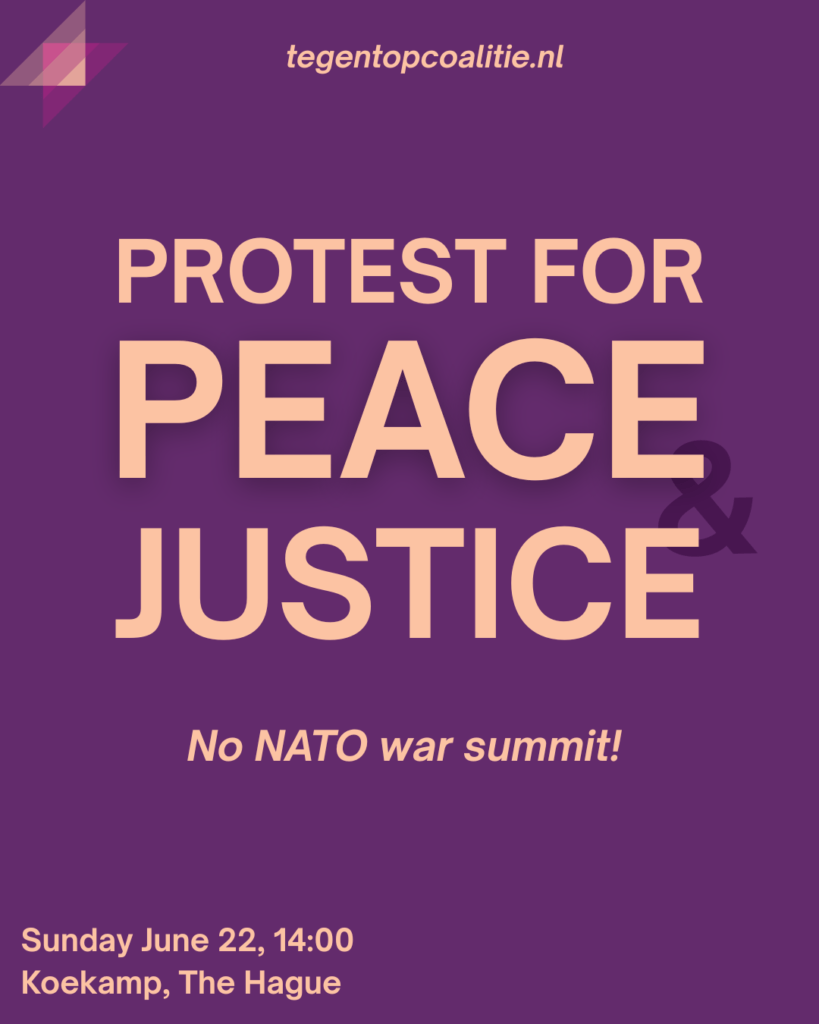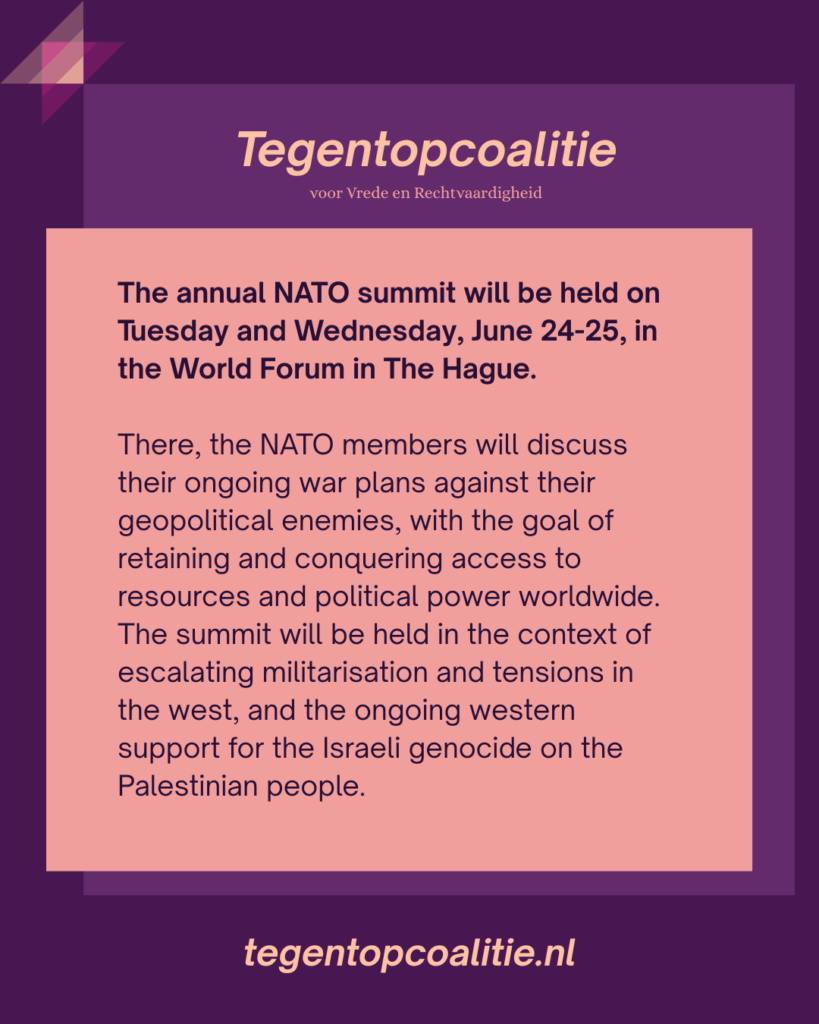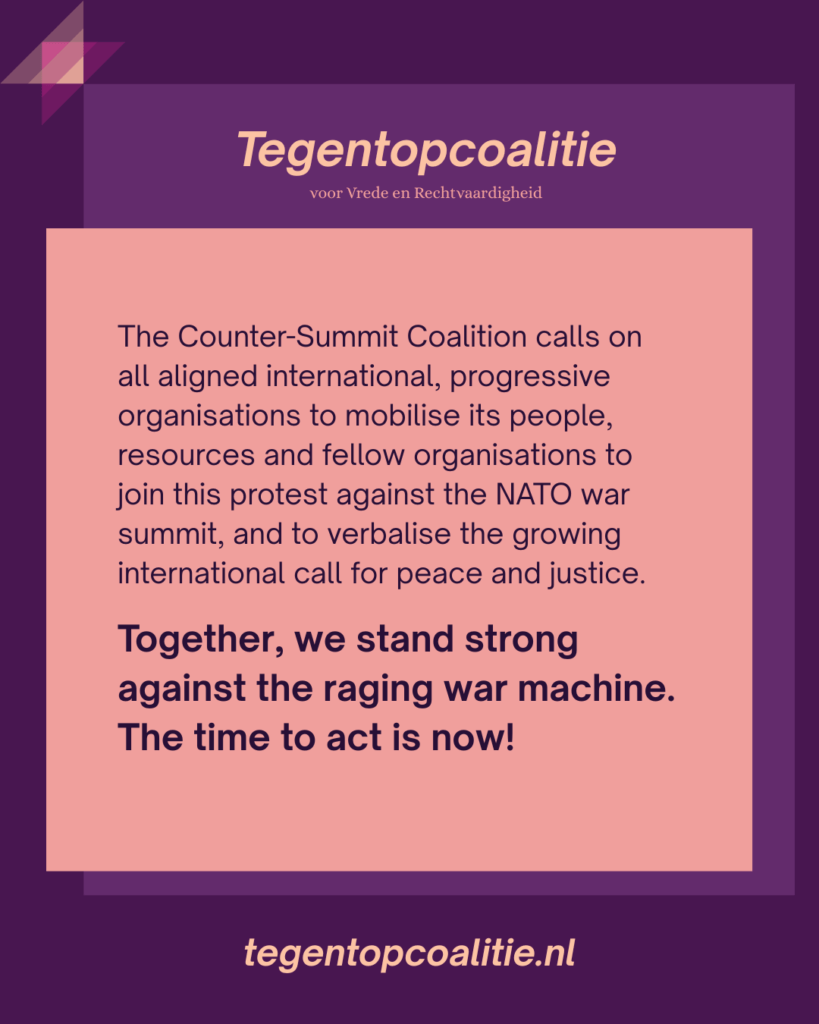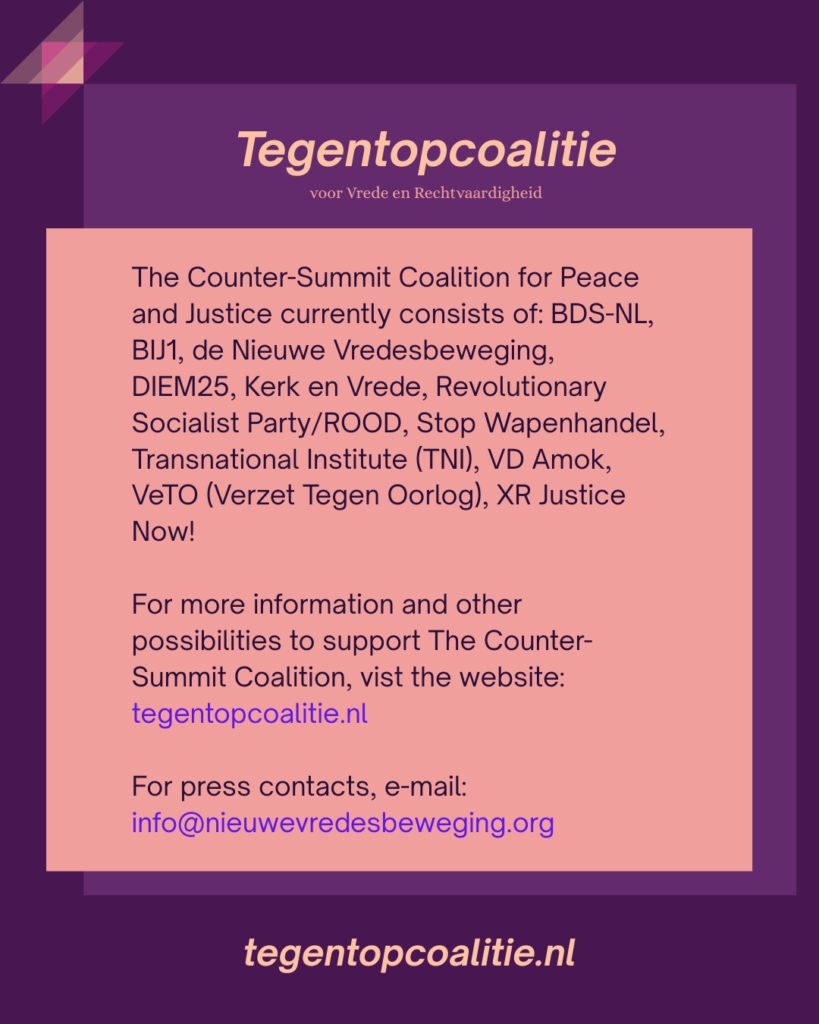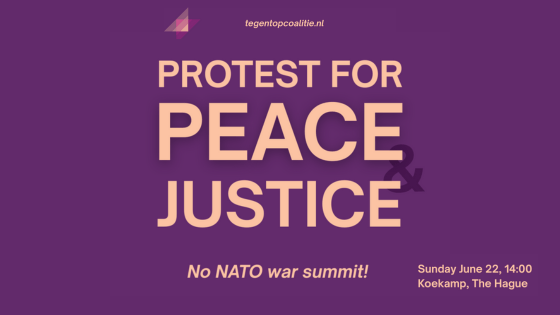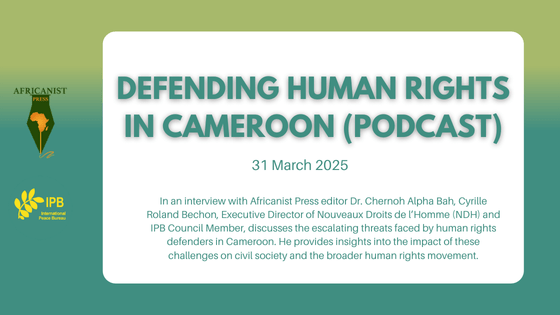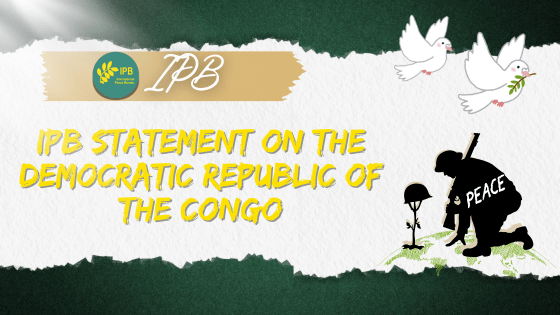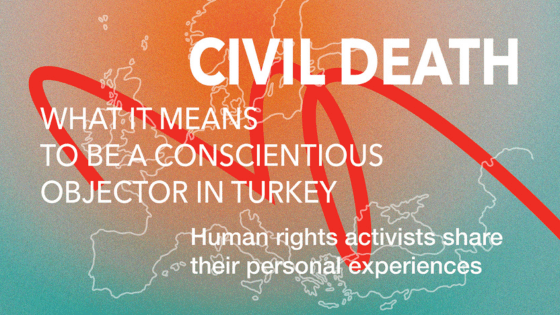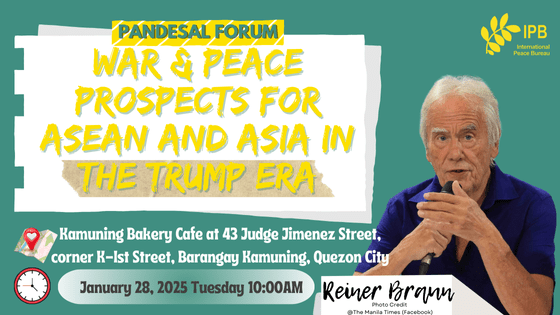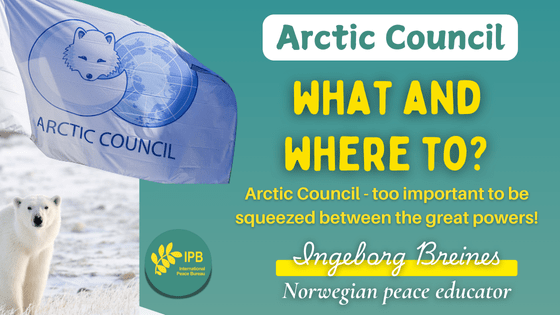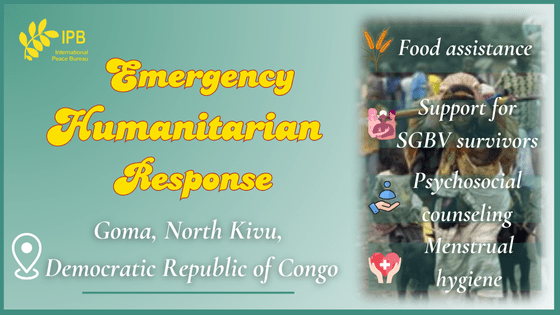PROTEST FOR PEACE AND JUSTICE
No NATO war summit!
When: June 22nd, 2025 at 14:00
Where: Koekamp (Laan van Reagan en Gorbatsjov), The Hague, Netherlands
On Tuesday 24th and Wednesday 25th of June, the annual NATO-summit will be held in the World Forum in The Hague. There, NATO’s members and heads of state will discuss their ongoing war plans against their geopolitical enemies, with the goal of retaining and conquering access to resources and political power worldwide. The summit will be held in the context of escalating militarisation and tensions in the west, and the ongoing western support for the Israeli genocide on the Palestinian people.
The organisation calls on all aligned international, progressive organisations to mobilise its people, resources and fellow organisations to join this protest against the NATO war summit, and to verbalise the growing international call for justice and peace. Together, we stand strong against the raging imperialist war machine. The time to act is now!
Organisation
This protest is organised by the Dutch Counter Summit Coalition for Peace and Justice, composed of several of the leading Dutch organisations on the topic of anti-imperialism, peace and social justice. Including, but not limited to: the Revolutionary Socialist Party and their youth organisation ROOD, De Nieuwe Vredesbeweging, BIJ1, and Stop Wapenhandel. Besides this protest, the coalition is also organising a counter summit (with limited capacity) on the 21st and the 22nd of June.
The Counter Summit will finish before the protest starts, so attendance at both events is compatible. The Koekamp is a 2 minute walk from the Central Station of The Hague. There are several parking garages nearby. A public toilet is available at the Central Station. It is encouraged to bring anti-imperialist and pro-justice campaign material to the protest. Other additional information, e.g. the speaker programme and duration of the protest, will be shared at a later moment. The media kit for promotion can be downloaded through this link.
For pressing matters or additional questions, please contact the coordinator of the
protest:
Naomi Tyralla – (+31) 06 39 17 41 12 – n.tyralla@gmail.com
For questions related to the Counter Summit (not the protest), please contact the international coordinator of the Summit:
Guido van Leemput – (+31) 06 51 50 35 90 – vredespolitiek@riseup.net
Help us raise awareness and mobilize for peace!
Your contribution will support the international protest against the NATO war summit on June 22nd in Brussels, including outreach, logistics, and mobilization efforts.
Let’s take a stand together — No to war, yes to peace!
